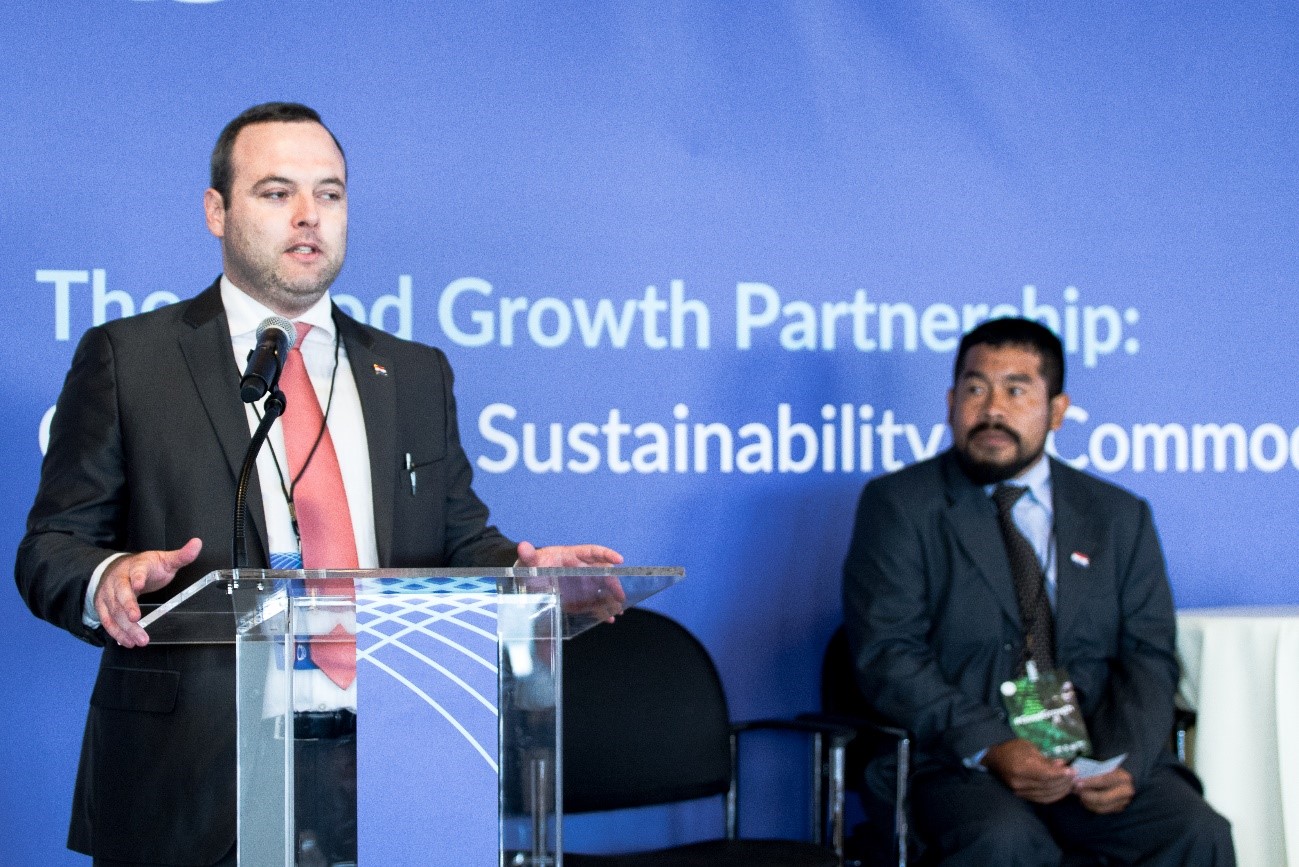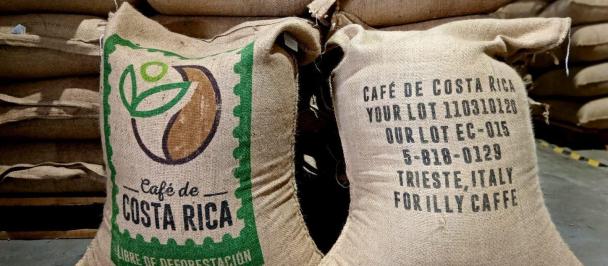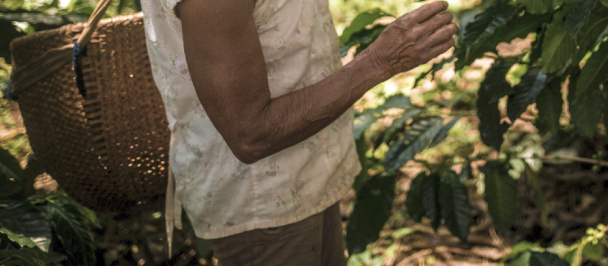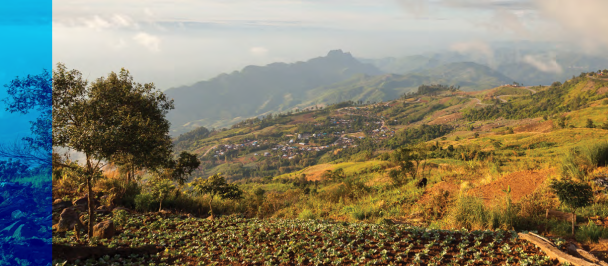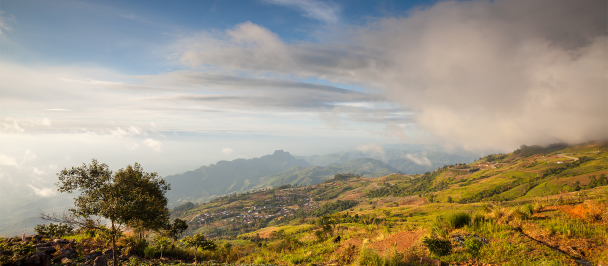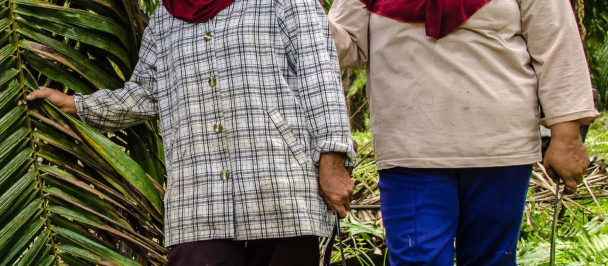As more countries seek to meet market demand for sustainable agriculture, leadership from key players in national governments is being recognized as essential in the shift toward the large-scale transformation of major commodity sectors. Despite the challenges, the launch of the Good Growth Partnership, in September 2017 at the UN headquarters in New York, was a testament to the willingness of key governments to take charge and to drive critical reform in the best interest of their economies and the environment.
Opening the high-level event, Global Head of the UNDP’s Green Commodities Programme, Andrew Bovarnick, emphasized the significance of government leadership within the Good Growth Partnership.
“I’d particularly like to thank our partner countries, Indonesia, Brazil, Paraguay and Liberia for joining this partnership and for traveling so far. I really believe that in these types of events, that we hold at a global level, they are as powerful as the decision makers in the room and the real decision makers are in those countries,” said Mr. Bovarnick.
Speaking on behalf of Liberia, where the palm oil industry is rapidly expanding, the Minister of Agriculture, Seklau E. Wiles, explained that while the country is excited about what the industry can do for poverty reduction the government is also well aware of the need to manage it responsibly especially with respect to land rights and the issuance of concession titles.
“The Government of Liberia has allocated 6,000 hectares as an area of interest for palm oil production. But since really investing in this sector, from 2009 and onwards, we have been experiencing some problems and now we are really looking at sustainable production and the consideration of livelihoods as the sector is growing quickly,” explained Minister Seklau E. Wiles whose ministry aims to strengthen an existing, national sustainable palm oil working group, with the support of the Good Growth Partnership. This working group is expected to align all actors related to the palm oil sector in Liberia.
A common theme running throughout the remarks from the government leaders, at the Good Growth Partnership launch, was the need to enable sustainable development that was defined as balancing the needs of their people and growing populations with respect to environmental protection.
“We support the cause of the Good Growth Partnership that, among others, seeks to balance social, economic and environmental objectives, which are inline with the priorities of the Government of Indonesia,” said Musdalifah Machmud Indonesia’s Deputy Minister for Food and Agriculture a the Ministry of Coordinating Economic Affairs.
While acknowledging the challenges and barriers to achieving sustainability, Paraguay’s Minister for Environment, Rolando de Barros Barreto, emphasized his country’s commitment to the environment as well as its efforts to mitigate carbon emissions.
“We are one of the countries with the least amount of emissions in the world and we want to continue that way. This has been possible through the generous support we’ve received from the Global Environment Facility and their dedicated teams at the United Nations Development Programme, who have given us the technical tools to take the path toward sustainability,” said Minister de Barros Barreto.
Paraguay’s Vice Minister of Livestock, Marco Medina, echoed the sentiment of Minister de Barros Barreto, reiterating the tremendous economic opportunities that the soy and beef sector has brought to his country but also noted the need to rethink the model of development and conservation.
The Vice Minister explained that over the past 15 years Paraguay has transformed its reputation as a minor exporter of beef, once worth an estimated $50 million, to 21 times that in 2017.
“No country in the world has ever experienced such a growth of beef production and exports. I think it’s also important to say that during this process… we also decreased poverty from 50 per cent to less than 20 per cent in the country,” he added.
“However we are now at a point in which we understand that we have to start working with a new development model… we understand the importance for the new generation to inherit a country with a good social economic status and also an environmental heritage,” said Vice Minister Medina.
Meanwhile, Brazil’s Deputy Secretary of Biodiversity at the Ministry of Environment, Fernando Lyrio, stressed the importance for governments like Brazil to highlight their efforts and also areas other stakeholders can support in supply chain reform, particularly when it comes to international stakeholders.
“The government has an important role. It’s essential that the government gives the right signs to the private sector, to the consumers, to the foreign governments on how it recognizes the environment,” said Mr. Lyrio.

 Locations
Locations